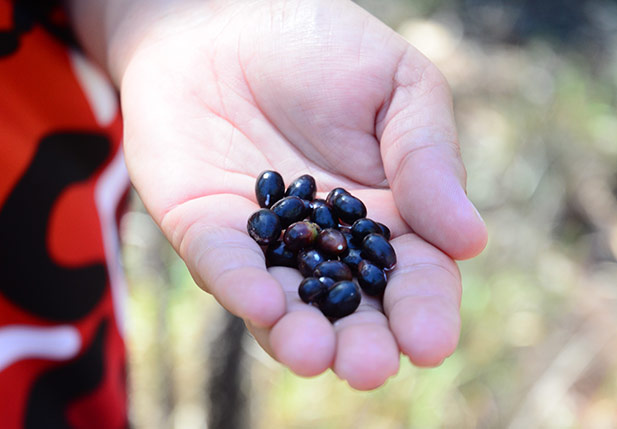Cultural heritage

Sponsored by

Sponsored by

Preserving heritage and knowledge through the South-West Indigenous Cultural Trail
All too often, large areas of regional Australia are overlooked when it comes to tourism – areas of rich natural beauty, history and culture. Within regional Australia, there is a growing need to restore and preserve local Indigenous history and culture. As the general population of regional towns decreases, it is critical to re-tell and reinstate the past as a history that is owned by local Aboriginal people.
Educating future generations about local Aboriginal history and the significance of different sites in regional towns was one very important way that Angela Walsh (Surat Aboriginal Corporation) felt she could hold onto her local Indigenous culture.
Driven by this need to increase the visibility of Aboriginal people, USQ researchers were commissioned by the Surat Aboriginal Corporation to support the development of an Indigenous Cultural Trail. This South-West Queensland drive trail for tourists captures history within living memory.
Each community has its own rich story to tell and the trail supports Aboriginal people in each of the six towns (St George, Surat, Roma, Mitchell, Charleville and Cunnamulla), documenting their stories, and places of significance, that they wish to share with visitors and tourists. These stories are then curated and materials are being developed that will ‘guide’ tourists through the region with information and stories about Indigenous heritage in each community.
The development of the trail has revealed many stories of erasure of the post-contact past - the plundering of important sites for construction materials, turning an Aboriginal camp site into a rubbish dump, removing all traces of hand-built dwellings, of Aboriginal schools and corroboree grounds, and the drowning or felling of scarred trees and birthing trees.
Producing a greater awareness of Aboriginal cultural heritage in the wider community, the trail will provide visitors to the region with an enhanced experience and knowledge of the places they visit. There is also further potential for economic development opportunities, particularly enhancing existing tourism, supporting local businesses and creating job opportunities for Aboriginal people in the region.
USQ researchers are also seeking to further understand the relationship between cultural heritage and wellbeing. Indigenous people of South-West Queensland will benefit from having access to research results that demonstrate the connection between engagement with cultural heritage and wellbeing.